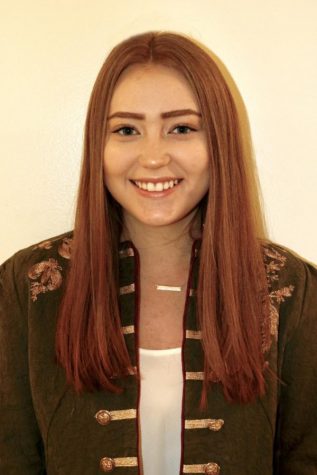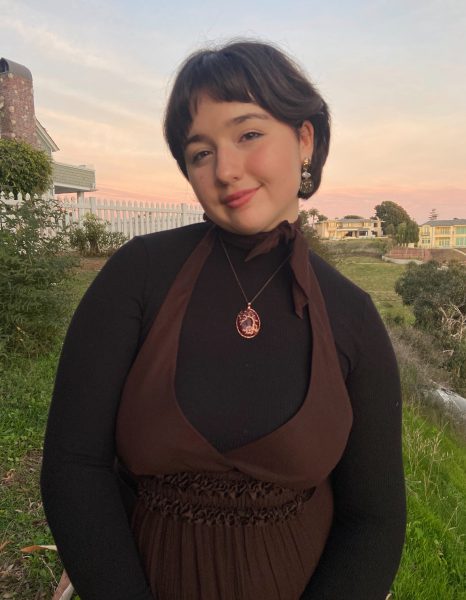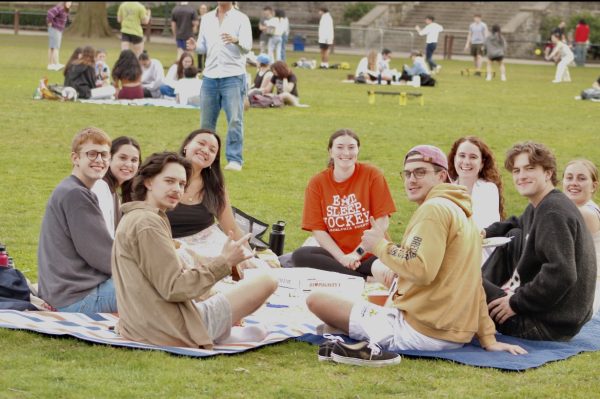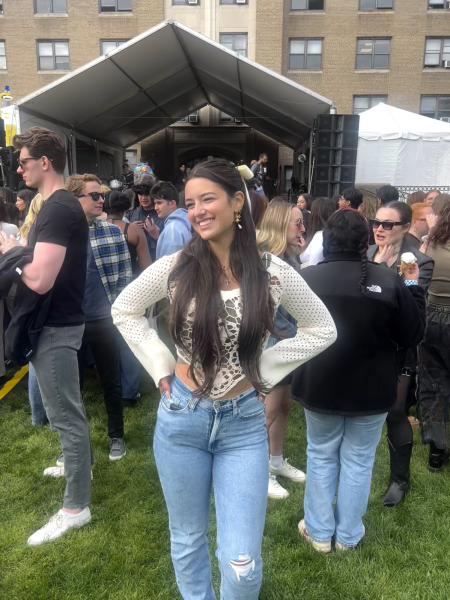Who’s That Kid? It’s Julia Mayes, FCRH ’22!
Julia Mayes, FCRH ’22, is bridging the gap between social justice issues, environmental concerns and scientific progress. Inspired by the physical world, Mayes is interested in the science behind the ways things work and the politics behind the ways our social systems fail.
As a double major in chemistry and environmental studies, she works to use her STEM knowledge to fight for a more equitable world.
Mayes is a member of Students for Environmental Awareness and Justice, faculty advisor, student assistant, tutor for the chemistry department and leader of the Ecological Justice panel for GO! Vote. She is also a great chef, possibly due to her extensive practice mixing solutions and catalyzing chemical reactions. On brief moments of relaxation, she can be found listening to Taylor Swift or watching “Love Island.”
As a sophomore, Mayes joined Dr. Christopher Koenigsmann’s research lab. Their current project explores how fuel cells can be utilized as an avenue for renewable energy. Compared to well-known green energy sources like wind turbines and solar panels, fuel cells require platinum as a catalyst, which is expensive and scarce. Mayes researches ways to make fuel cells a viable renewable energy source by creating different alloys and catalysts that can be commercialized.
“It is not just a scientific issue,” said Mayes, “science, the environment, and human rights are inherently related.” Having greater green energy options can protect the planet and limit the injustice that comes with environmental decay, such as food insecurities and health risks. “The burdens of climate change fall on disadvantaged communities the most, so we must use science to protect the Earth and each other.”
Working in Dr. Koenigsmann’s lab has been an amazing experience professionally, intellectually and socially, said Mayes. Here she met a group of like-minded women who mentored her, inspired her to continue to pursue STEM and support other women. “Being involved in research has surrounded me with other students who are also passionate about renewable energy and who motivate me.” Her research and academic success even earned her the prestigious Clare Boothe Luce Scholarship for women in STEM.
Due to COVID-19 restrictions, however, Mayes cannot physically be in the lab. Though she wishes she could synthesize and platinize nickel nanowires in her dorm room, Mayes instead analyzes past data and researches other work in the field in hopeful anticipation of returning to the lab sometime later this semester.
As Mayes continues to fight for environmental equity, she looks forward to supporting other women in STEM and pursuing graduate school. “There is a divide between science and social justice, so I like being involved in environmental science, which is at the intersection of both,” noted Mayes, who is optimistic about the future. “If we can bridge the gap between human rights activism and science-based research, there will be meaningful progress.”

Katherine Morris is a junior at Fordham College at Rose Hill, double majoring in digital technologies and emerging media and mathematics/economics, and...













































































































































































































